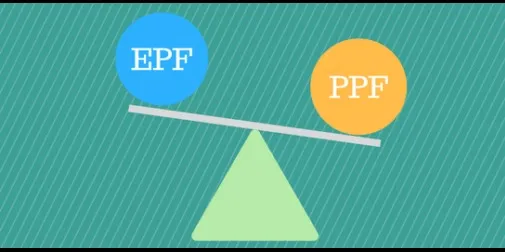

How to protect your life earnings against inflation?
When you’re saving with retirement as your end goal, don’t forget to ensure that you factor in inflation.
This way, you will be able to focus on growing your money in the right way, so that you have a substantial corpus to take care of all your needs even with rising inflation. Without this measure, you may find that your retirement corpus is not sufficient to cater to your needs.
Keep these 5 tips in mind and rest assured that you will be able to protect your life’s earnings from the ill-effects of inflation.
Make good Use of your PPF and EPF
When you retire, you will receive a lump sum from your Employee Provident Fund (EPF). If you have invested in a Public Provident Fund (PPF), you’ll receive a substantial amount from it too.

The total from these two funds can help you cushion your retirement, but not if you withdraw the money and deposit it into a savings account. This may seem like a natural progression, but doing this will only allow you to earn 4% interest (on average), as this is what most savings accounts offer.
Instead of parking the funds in a saving account look at ways in which you can reinvest the corpus. One way of doing this is by opening a fixed deposit. For instance, gives you around 7.85% rate of interest on your corpus, and around 8.10%, if you are a senior citizen. (FD) Fixed Deposit also allows you to start one with a nominal amount of Rs.25,000.
You can pick a tenor of your choice and benefit from a high-interest rate, all while transacting online, from the comfort of your home. You can choose a term as short as one to five years to beat inflation.
Take Stock of your Investment portfolio
To ensure that your life earnings beat inflation, monitor your portfolio. See how your investments perform when inflation soars and adjust the elements. Don’t forget to tally your rate of return against the rate of inflation. For example, if the rate of inflation is 5% and your money is earning you only 4% interest, you’re not beating inflation.

Since you’re investing for long-term financial security, make sure that your decisions are not rushed as this can have a negative impact on your portfolio. Consult with a financial expert, weigh all the pros and cons, and then add or subtract elements from your portfolio. This will ensure that you’re doing what is best for your situation, while ensuring that your money grows to its full potential.
Dedicate a Portion of your Portfolio to Stocks
Picking the right stocks in the right proportion can help you beat inflation. Parking your entire investment corpus in stocks isn’t advisable for anyone, but if you’re planning for retirement or are on the verge of retiring, dedicating 10%–20% of your portfolio to stocks can work to your advantage.
Instead of experimenting with stocks, approach this investment option systematically. Invest only in stocks that benefit from power pricing during inflation. For example, prices of certain metals rise during inflation. So, investing in a metal company’s stocks can help you build a safety net against inflation, as your returns from this stock are likely to be line with inflation.
Invest in the Right Mutual Funds
Investing in mutual funds is another smart move that you can make. If you can’t purchase a house to build a hedge against inflation, picking a mutual fund that invests in real estate is just as good. You can also pick mutual funds or ETFs that invest in precious metals, such as gold. Also, as per research by Trinity College, investing in gold is extremely beneficial 15 days after a stock market crash as gold prices continue to rise up to this period.

Invest in Yourself
If you have always wanted be a teacher or work as a consultant in your area of specialisation, why not turn that into a post-retirement income avenue? This will allow you to work on your terms and ensure that you’re taking home a pay cheque that is line with the rate of inflation.
In fact, if you can do a course to supplement an interest, your earning potential increases further. While you shouldn’t rely only on this, it is a good way to build funds during retirement with a view of beating inflation.



![Top 10 Cheap Indian Press Release Distribution Services [Updated]](https://images.yourstory.com/cs/1/b3c72b9bab5e11e88691f70342131e20/LOGO-DESIGN-PR-INDIA-WIRE-03-1595693999405.png?mode=crop&crop=faces&ar=16%3A9&format=auto&w=1920&q=75)


